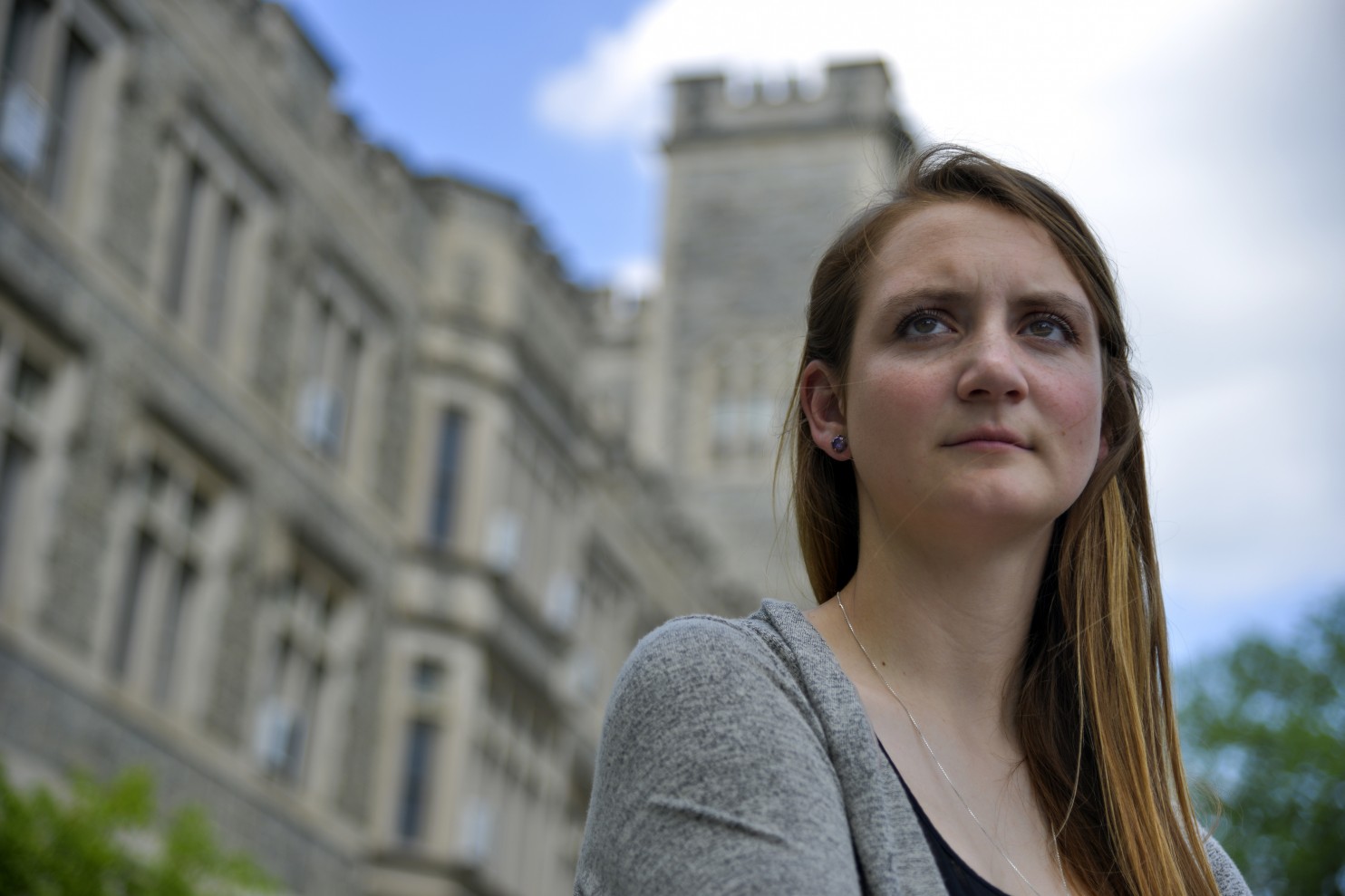Catholic U. Student Recounts Her Struggles after Reporting a Sex Assault
By Nick Anderson
Erin Cavalier downed a couple of glasses of wine and a few shots of tequila, grabbed a water bottle filled with vodka and Sprite, and headed out from her dormitory to celebrate the end of her first semester at the Catholic University of America. After polishing off the mixed drink, the 18-year-old from Northern California started drinking beer at a party. After midnight, in what she describes as a stupor, she asked if someone could help her walk to her room on the campus in Northeast Washington. A male student she considered an acquaintance volunteered. She says she blacked out. Back in her room, Cavalier recalled, she regained awareness. The man was on top of her, she said, raping her. Cavalier said she was too drunk to agree to sex. “I never consented,” she said. The man saw it differently, telling investigators that Cavalier was a willing participant in a sexual encounter after he walked her home and she signed him into her dorm. The man was never charged with a crime, and an initial D.C. police report said evidence indicated there was mutual consent. But that was not nearly the end of it. What happened that night in December 2012 set off a chain of events that a year and a half later pushed the Vatican’s university in America into a fierce national debate over how colleges respond to allegations of sexual assault. In growing numbers, students such as Cavalier are stepping forward to force public scrutiny of an issue that has quietly affected colleges for decades.
Some campus sex-assault cases are clear-cut. But many emerge from murky circumstances involving alcohol, parties and young adults living away from home for the first time. Under federal law, sexual violence on campuses is not only a crime but also a form of illegal discrimination requiring speedy remedy. Students are increasingly demanding action from their schools, which in turn face heightened pressure from the government to investigate and resolve the allegations. Reports are growing Reports of forcible sex offenses on college campuses nationwide grew from about 2,600 in 2009 to more than 3,900 in 2012, according to federal data, up 50 percent. That doesn’t mean campuses became that much more dangerous in those years; experts say students who in previous generations probably would have remained silent about what they experienced are now coming forward. Colleges, too, have become more thorough in documenting the problem and teaching students that incapacitation, through alcohol or drugs, prevents effective consent. The trend is likely to accelerate. President Obama drew public attention to campus sex assaults this year through a White House task force. Lawmakers have invited survivors of sex assaults to Capitol Hill to advise them on legislation. But there are at least two sides to every allegation. Brett A. Sokolow, president of the National Center for Higher Education Risk Management, said he worries that many students accused of sexual misconduct are “getting much less of a fair shake than they used to.” Accused students often say they are the victims. Sokolow said some cases that in years past would have been considered “drunk sex” are now being examined for disciplinary violations. Colleges, he said, “have got to get this thing just right.” Cavalier, now 20 and a rising junior, said she wants Catholic to reform how it responds to reports of sexual assault. “As a survivor,” she said, “I know how horrible it can go.” The Washington Post generally does not identify those who report being victims of sexual assault. But Cavalier chose to go public with her story to illuminate a complaint she filed with the federal government alleging that Catholic University mishandled her case, violating a 1972 law called Title IX that bars gender discrimination. The complaint alleges that Cavalier was unfairly “forced to lobby, argue and fight for a grievance hearing,” an internal misconduct trial held behind closed doors. Catholic initially decided a hearing was unwarranted but reversed itself after several months of back and forth with Cavalier and her representatives. A university hearing board concluded in October that there was insufficient evidence to find that Cavalier’s alleged attacker had violated the student conduct code. “The university is confident that it acted appropriately in investigating and resolving the issue that gave rise to the student’s complaint,” Catholic spokesman Victor Nakas said. Federal investigations Catholic, with 6,700 students, was founded under a papal charter in 1887. It is one of about 60 institutions of higher education under federal investigation for their handling of reports of sexual violence. They range from Harvard Law School and Princeton University to the Butte-Glenn Community College District in California and the West Virginia School of Osteopathic Medicine, according to federal officials, who disclosed a comprehensive catalogue of investigations for the first time on May 1. Four Virginia schools are under investigation: the University of Virginia, the College of William and Mary, James Madison University, and the University of Richmond. So is Frostburg State University in Western Maryland. Federal investigations begin after individuals file complaints or the Education Department initiates a compliance review. Federal officials said they have drawn no conclusions that any of the schools are violating the law.
|
.
Any original material on these pages is copyright © BishopAccountability.org 2004. Reproduce freely with attribution.

